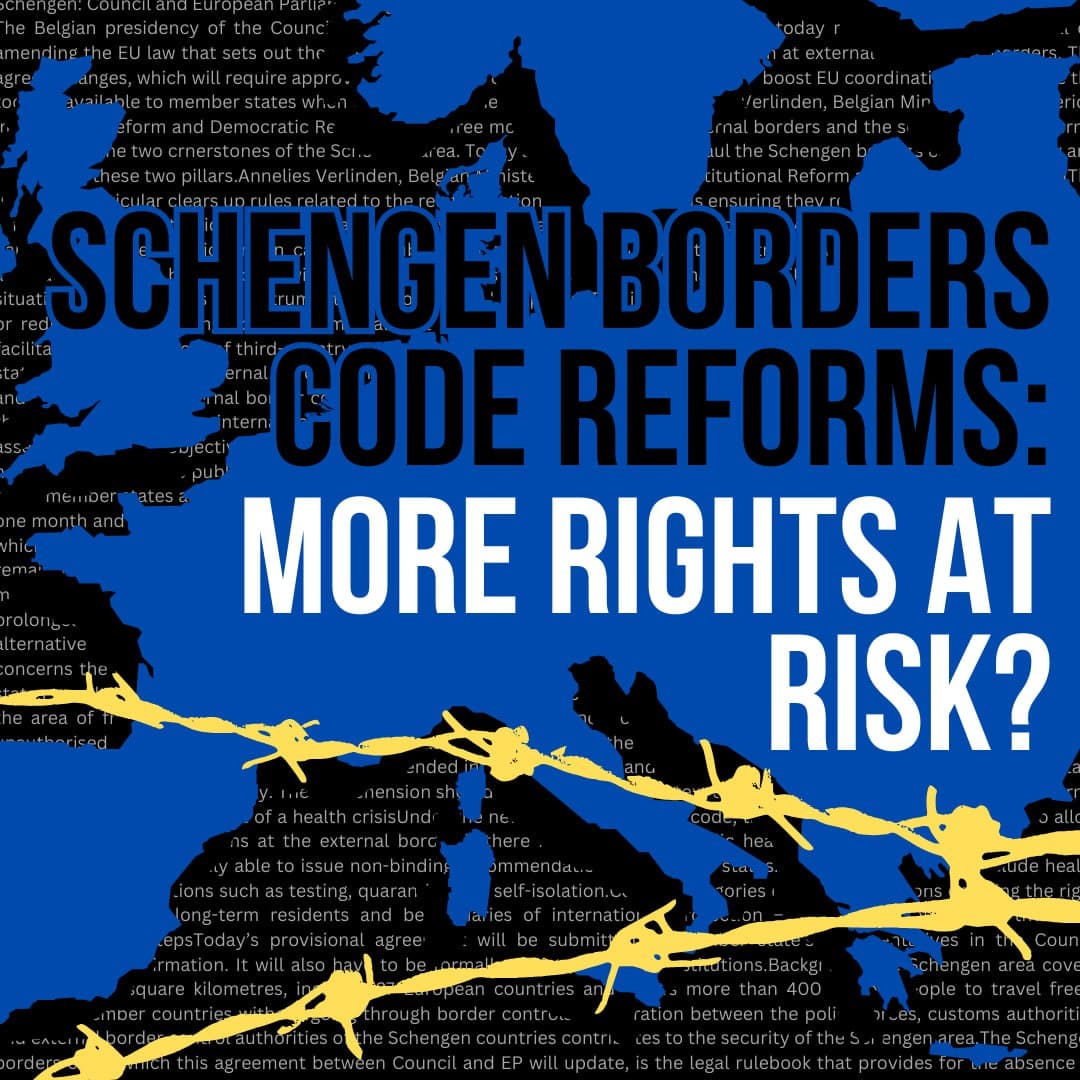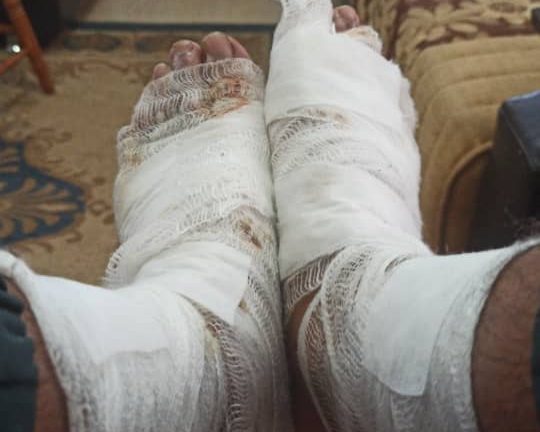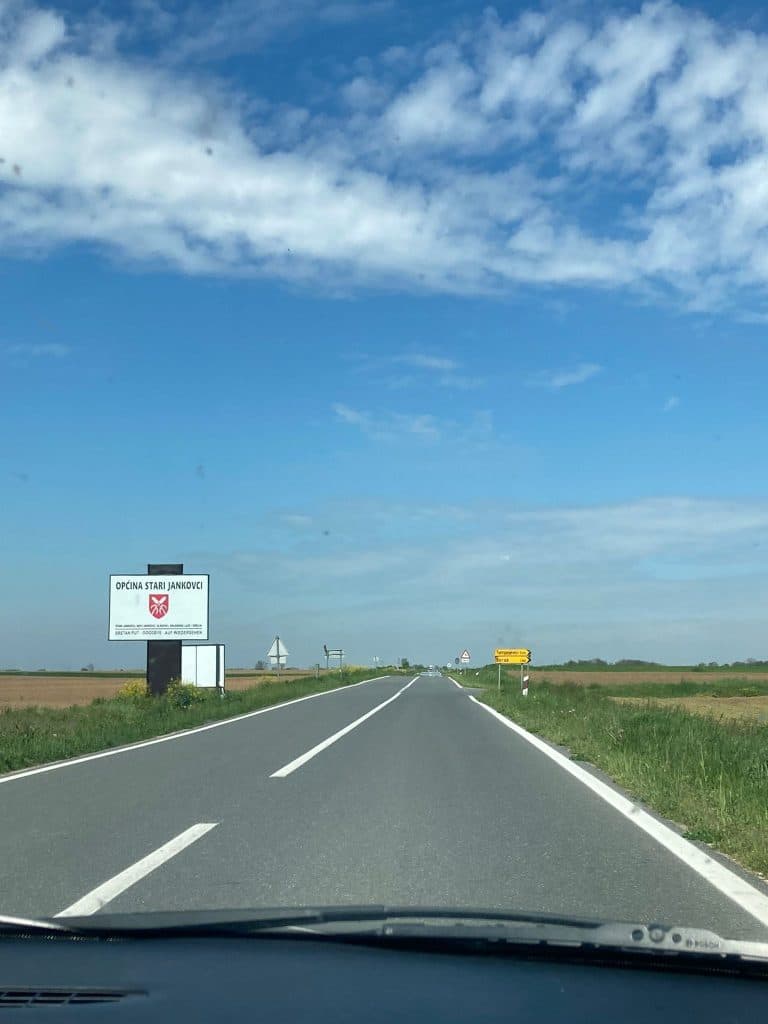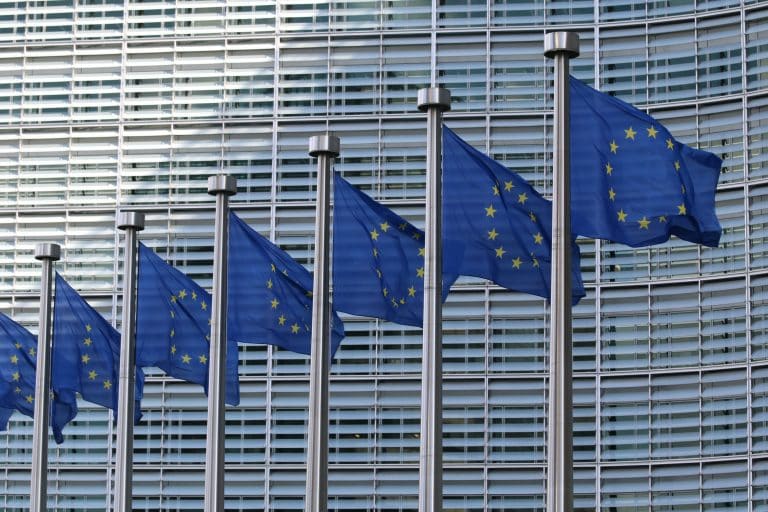By Esme Smithson as part of No Name Kitchen
Today (April 24th) the LIBE Committee of the European Parliament votes on the reforms to the Schengen Border Code (the rules controling free movement in the Schengen) – and it’s stirring up concerns and direct warnings from activists and NGOs across the EU.
The reform will make border controls within the Schengen area more permanent, legitimating and institutionalising racial profiling. It introduces ‘alternative measures’ which are both deliberately vague and extremely concerning, and it threatens the right to asylum even further than the EU Migration and Asylum Pact already did.
So, what are the clauses of the reform, and why is it so concerning?
‘Reintroduction of internal border controls’
For years EU states have been internalising their borders. Surveillance, random ID checks, showing documents to access services, and all that nasty shit that corrodes rights and privacy. Introducing these controls within the EU is legal only on a temporary basis and in so-called ‘exceptional’ situations, and states have to notify the European Commission of their reasons. But that process is being used more and more, with ‘migration management’ being given as the reason for it.
We already know that this process is enormously racist and disproportionately affects marginalised people, but the reforms make it less temporary and easily prolonged. It’s discriminatory, and legitimates racial profiling. The extra controls are supposedly to prevent member states using the ‘temporary reintroduction of controls’, but it legitimates a (false and messed up) narrative that people without papers pose a problem for the EU, and it puts even more power in the hands of already racist, sexist, and violent institutions like the police and border forces.
‘Promotion of alternative measures’
To further avoid member states resorting to the temporary reintroduction, the EU will promote so-called ‘alternative measures’. They’re suspiciously quiet about what these could mean, but firstly it could mean increasing border surviellance and using more technology on the border – tools already being used in violent pushbacks and in the systematic denial of the right to asylum, both on internal and external borders.
Article 23 is particularly concerning, introducting a procedure for ‘immediate returns’: A sterile term to describe the pushbacks which are already happening across Europe. This supposedly will not affect asylum-seekers, but in practise we are certain it will given the widespread violent pushbacks against all people on the move that NNK has been documenting for years. Article 23 gives border forces impunity for their pushbacks, including without considering asylum claims, by offering the legal defence of ‘immediate return’.
‘External border measures in the event of a health crisis’
The reforms will permit states to strengthen temporary travel restrictions in the event of a ‘health crisis’. This is because during the COVID-19 pandemic the EU only able to issue non-binding recommendations, so now health related restrictions will be systematic and structured.
The introduction of health-related border controls may not seem so problematic, except that it deliberately exempts “Certain categories of people – persons enjoying the right of free movement, long-term residents and beneficiaries of international protection”. So who’s left…? The health-related reforms offer member states easier and easier ways to crack down on their borders in ways which will continue to disproportionately affect people denied papers, denied asylum, and denied the right to freedom of movement. ‘Health crises’ may turn out to be a thinly veiled excuse for the continued exclusion and injustices of the European border regime.
‘Fighting the instrumentalisation of migration flows’
The EU is increasingly terrified of a phenomena they call ‘instrumentalisation’, which is when control of transit routes is used as a bargaining chip by third countries to get the EU to comply with their demands. For example, a third country stopping controlling a border with the EU unless the EU sends more money.
They use this threat as a justification for many of the crackdowns which the reforms introduce (both here and in the new Migration and Asylum Pact), but let’s be clear: instrumentalisation only works because the EU is so terrified of people moving.
There’s other ways to prevent instrumentalisation that don’t compromise human rights (or in ways which would even promote human rights) like legal routes for asylum, ending the dirty externalisation deals, and demilitarisation of borders.
NNK’s Demands:
The Schengen Border Code is a seperate means of control to the Schengen Area which is seperate again to the EU: locations like Cueta and Melilla (Spain’s enclaves in North Africa) are already strategically excluded where it serves a vicious agenda of so-called ‘migration management’, and now the reforms to the Schengen Border control add extra layers of power and exclusion, where reforms could have been an opportunity to integrate and unite. Instead of these reforms, we demand:
- Strengthen anti-discrimination legislation – not weaken it – and reaffirm its application to police and border forces.
- Reject the increasing use of ‘instrumentalisation’ as an excuse for human rights abuses.
- Refuse ‘immediate returns’ at the discretion of racist and violence police/border forces
- And of course… open the bloody borders.





